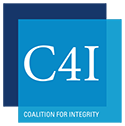Passage of the DATA Act Welcome News; Key to Success Will be Implementation
April 20, 2014On April 28th, the House of Representatives unanimously passed the Digital Accountability and Transparency Act or DATA Act. The House vote follows unanimous passage of the DATA Act by the Senate on April 10th. Transparency International – USA applauds both the House and the Senate for their bipartisan efforts on behalf of this important piece of legislation. Read More
Good Governance as a Standalone Development Goal
April 11, 2014The United Nations is currently working towards developing a set of sustainable development goals (SDGs) that will provide the framework for whatever new global commitments are agreed upon as a replacement to the Millennium Development Goals (MDGs), which expire in 2015. Read More
The 2013 Corruption Perceptions Index (FCPA Blog)
December 3, 2013Transparency International released its 2013 Corruption Perceptions Index (CPI), a widely-used indicator that measures the perceptions of public sector corruption worldwide.
As in 2012, the United States ranks 19th, with a score of 73. This score is lower than many other OECD countries including Australia, Germany, the United Kingdom, and Japan. The United States is also fourth in the Americas region, ranking below Canada, Barbados, and Uruguay. The reasons we suggested for the U.S. ranking last year, namely lack of transparency in the campaign finance system, as well as corruption and lack of transparency in state and local institutions, continue to persist. Read more
The DATA Act Moves Forward in the U.S. Senate
November 15, 2013On November 6th, the Senate Homeland Security and Governmental Affairs Committee passed the Digital Accountability and Transparency Act or DATA Act. This action follows passage by the House Committee on Oversight and Government Reform in May. Transparency International – USA welcomes congressional action on this important piece of legislation. Read More
Transparency International’s Annual Progress Report: Assessing Country Enforcement of the OECD Anti-Bribery Convention (FCPA Blog)
October 8, 2013Transparency International (TI) has released its ninth annual progress report on the enforcement of the OECD Anti-Bribery Convention. The report presents an independent assessment on the status of enforcement in all of the 40 Parties to the Convention. Read more
Review of World Bank Sanctions System: A Good Start but Additional Transparency Needed (FCPA Blog)
August 12, 2013The World Bank Group is currently undertaking an evaluation and review of its Sanctions System. That Sanctions System is an integral part of the Bank’s Anti-Corruption policy in that it provides a framework for punishing corrupt contractors, thereby creating a deterrent to corruption. Read More
Global Corruption Barometer 2013 (FCPA Blog)
July 9, 2013Transparency International releases its 2013 Global Corruption Barometer, the world’s largest public opinion survey on corruption. The Barometer shows both global and U.S. concerns regarding corruption and transparency in government institutions and political culture. However there is some positive news. Globally and in the U.S., nearly 9 out of 10 people surveyed indicated a willingness to get involved in the fight against corruption. Read more
Progress from G8 leaders on transparency, anti-corruption (FCPA Blog)
June 18, 2013The G8 countries have endorsed an action plan of core principles to prevent the misuse of anonymous corporations. Read more
Opportunities for Transparency: Will the G8 Act? (FCPA Blog)
June 17, 2013In the vast majority of 150 grand corruption cases, corporate vehicles were misused to conceal the identities of public officials involved in corruption. These reports underline both the significance of the problem and also the potential cost to development. Resource-rich countries in Africa and elsewhere have similar stories and comparable governance issues. Similarly, companies that extract natural resources also share some responsibility for transparent practices. The summit in Northern Ireland represents an important opportunity for G8 leaders to make meaningful progress in promoting transparency in the beneficial ownership of companies and extractive resources. Read more
A case for more integrity in the financial sector (Devex Blog)
January 17, 2013Many countries have established laws, regulations and procedures to prevent money laundering. In the United States, for example, financial institutions have an obligation to file suspicious transaction reports, conduct customer due diligence and engage in anti-money laundering, or AML, compliance. However, as a recent World Bank report highlights, in many countries, both developing and developed, including in the United States, there are still significant loopholes allowing corrupt individuals to launder and ultimately enjoy their illegally obtained gains. Read more

